The Liberal Democrat housing drama
Ed Davey suffered a bruising defeat on the conference floor leading some to question his leadership

A free daily email with the biggest news stories of the day – and the best features from TheWeek.com
You are now subscribed
Your newsletter sign-up was successful
The authority of Liberal Democrat leader Ed Davey's ship has been dented this week after party members rejected his plans to scrap its national housing target.
Davey had previously announced he wanted to drop a pledge to build 380,000 new homes a year in England in favour of local targets focused on new council or social homes.
But his plan was "foiled by a group of young activists", Sky News reported, who put forward an amendment after arguing that Davey's policy was "not ambitious enough".
The Week
Escape your echo chamber. Get the facts behind the news, plus analysis from multiple perspectives.

Sign up for The Week's Free Newsletters
From our morning news briefing to a weekly Good News Newsletter, get the best of The Week delivered directly to your inbox.
From our morning news briefing to a weekly Good News Newsletter, get the best of The Week delivered directly to your inbox.
The Young Liberals ultimately gained the support of the majority of members at the party's national conference in Bournemouth.
The 'prehistory' of the conference
The last time the Liberal Democrats gathered in Bournemouth for their conference the place was "giddy with excitement", said Stephen Bush in the Financial Times (FT), as "defectors" from both Labour and the Conservatives hoped to reignite the party in 2019.
But the attempt to woo back voters in that year's election proved disastrous, when the party lost seats, including that of their leader, Jo Swinson.
The December 2019 election "is a vital part of what you might call the prehistory of this year's conference", Bush added, as Davey has been determined to "shed and downplay" any policy that could turn off Conservative voters.
A free daily email with the biggest news stories of the day – and the best features from TheWeek.com
To emphasise his point, the leader "wheeled out" his predecessor Tim Farron, said The Spectator's Steerpike, and he "decried" the housing proposal as "pure Thatcherism".
Farron told the conference the "vague and vacuous" housing targets would not work, as they achieve "naff all". He urged conference to reject the amendment proposed by the Young Liberals.
But he was "booed" by disgruntled members, said the Daily Express, and ultimately "had his microphone cut off having spoken for the maximum duration allowed".
Bruising defeat
The vote has been a "blow to Davey's authority", said The Guardian, in the "first sign of internal pushback" against the leader's ideas.
For some, it has led to questions about the Lib Dem leader, while others are uncertain what the party stands for, if it cannot agree on key issues.
The party is "being coy about who they really are", said Suzanne Moore for The Telegraph, a tactic that "never plays well in the polls".
While many are "sick of the two-party system", the notion that the "Lib Dems have nothing to offer" having been so "badly burnt" during their coalition government experience, could well put voters off supporting Davey at the next election.
"You always want to win, but I'm a Liberal Democrat so I'm kind of used to it."
Tim Farron, former Lib Dem leader
What's the plan now?
Although the aim of the Liberal Democrats is to overtake the SNP and reclaim their position as the third largest party in Westminster, it is Davey's refusal to state the party's official position on key issues that has been perplexing for some.
This "hasn't gone unnoticed", said Sky News' Beth Rigby, particularly on Brexit and the question of rejoining the EU.
Davey's future relationship with the Labour Party is equally unclear. He has refused to be drawn on the prospect of a coalition, "trying to squirm out of a tricky answer" when pressed, Rigby added. Even so his "non answer speaks volumes".
Coalition has not been favourable for the party in the past, but the prospect of entering government once again has "whetted the appetites" of the party faithful and those businesses "who have sniffed out a scent of power", said the BBC.
Ultimately, the Liberal Democrats will need to "think about their relationship with Labour", especially as the pair's "non-aggression pact has broken down", The Observer's Andrew Rawnsley stated. If either hopes to be successful, they will need to "kiss, make up and refocus" on their common goal – "removing as many Conservative MPs as possible".
Victory for Yimbys
Although housing may not be a policy on which the next election is won or lost, it will continue to be a major talking point amid the cost-of-living crisis.
On this particular issue, "Yimbys beat Nimbys", said Politico. But the party may yet be able to unite around the housing goal and put its internal differences aside. When asked by the political website about the defeat on the conference floor, Farron said: "You always want to win, but I'm a Liberal Democrat so I'm kind of used to it."
Rebekah Evans joined The Week as newsletter editor in 2023 and has written on subjects ranging from Ukraine and Afghanistan to fast fashion and "brotox". She started her career at Reach plc, where she cut her teeth on news, before pivoting into personal finance at the height of the pandemic and cost-of-living crisis. Social affairs is another of her passions, and she has interviewed people from across the world and from all walks of life. Rebekah completed an NCTJ with the Press Association and has written for publications including The Guardian, The Week magazine, the Press Association and local newspapers.
-
 5 blacked out cartoons about the Epstein file redactions
5 blacked out cartoons about the Epstein file redactionsCartoons Artists take on hidden identities, a censored presidential seal, and more
-
 How Democrats are turning DOJ lemons into partisan lemonade
How Democrats are turning DOJ lemons into partisan lemonadeTODAY’S BIG QUESTION As the Trump administration continues to try — and fail — at indicting its political enemies, Democratic lawmakers have begun seizing the moment for themselves
-
 ICE’s new targets post-Minnesota retreat
ICE’s new targets post-Minnesota retreatIn the Spotlight Several cities are reportedly on ICE’s list for immigration crackdowns
-
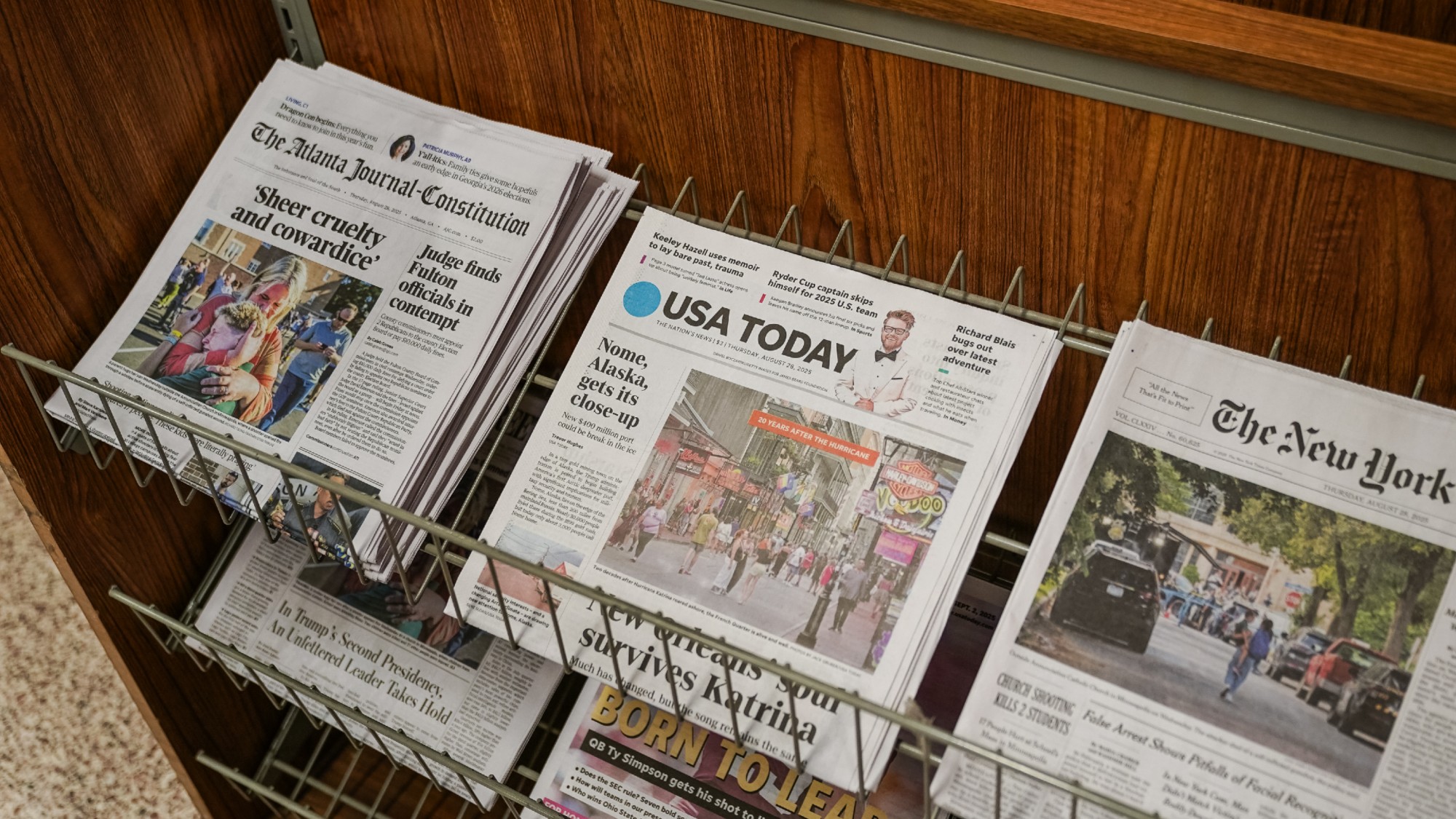 ‘Journalism is on notice’
‘Journalism is on notice’Instant Opinion Opinion, comment and editorials of the day
-
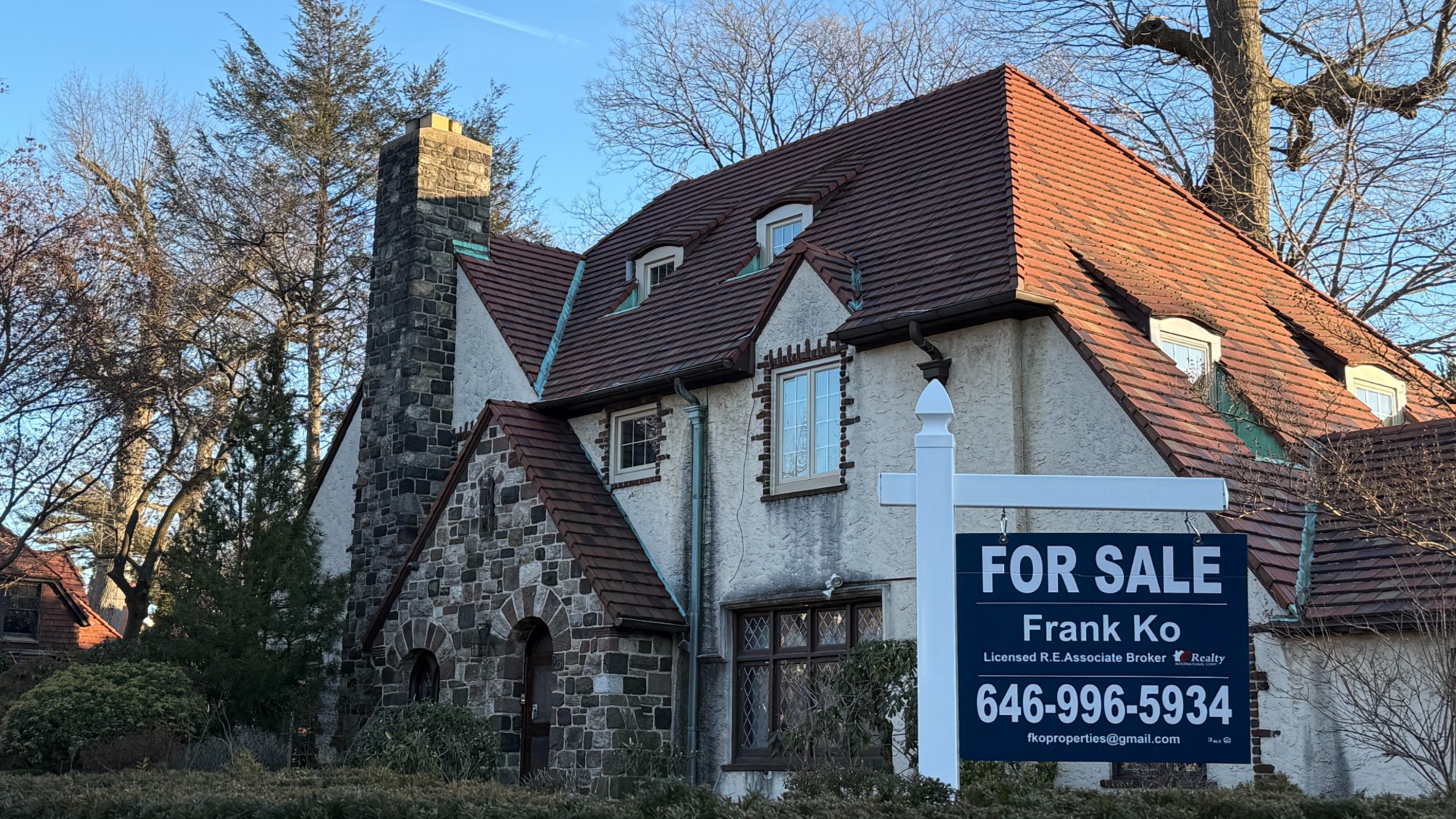 ‘City leaders must recognize its residents as part of its lifeblood’
‘City leaders must recognize its residents as part of its lifeblood’Instant Opinion Opinion, comment and editorials of the day
-
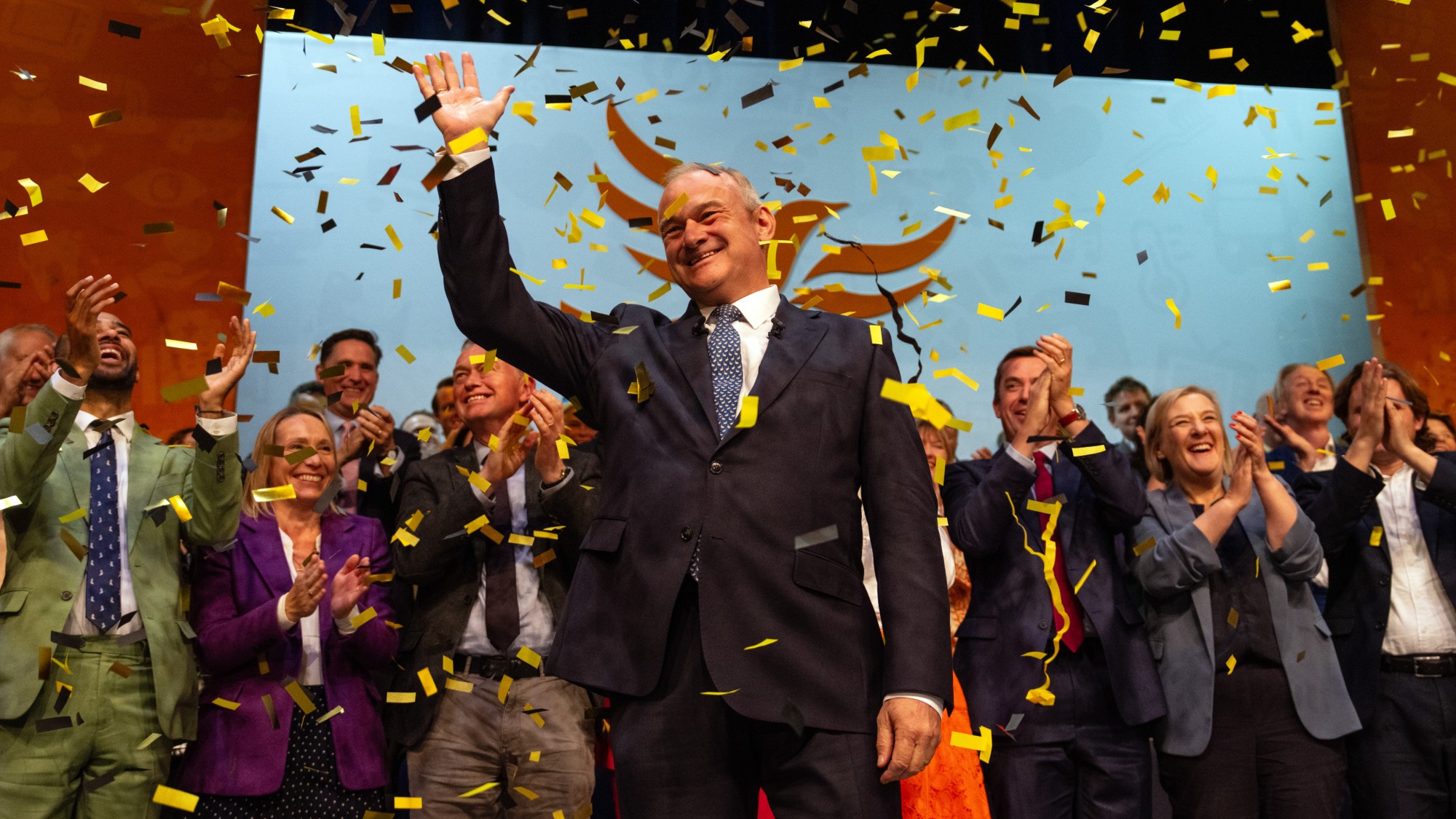 The Liberal Democrats: on the march?
The Liberal Democrats: on the march?Talking Point After winning their highest number of seats in 2024, can the Lib Dems marry ‘stunts’ with a ‘more focused electoral strategy’?
-
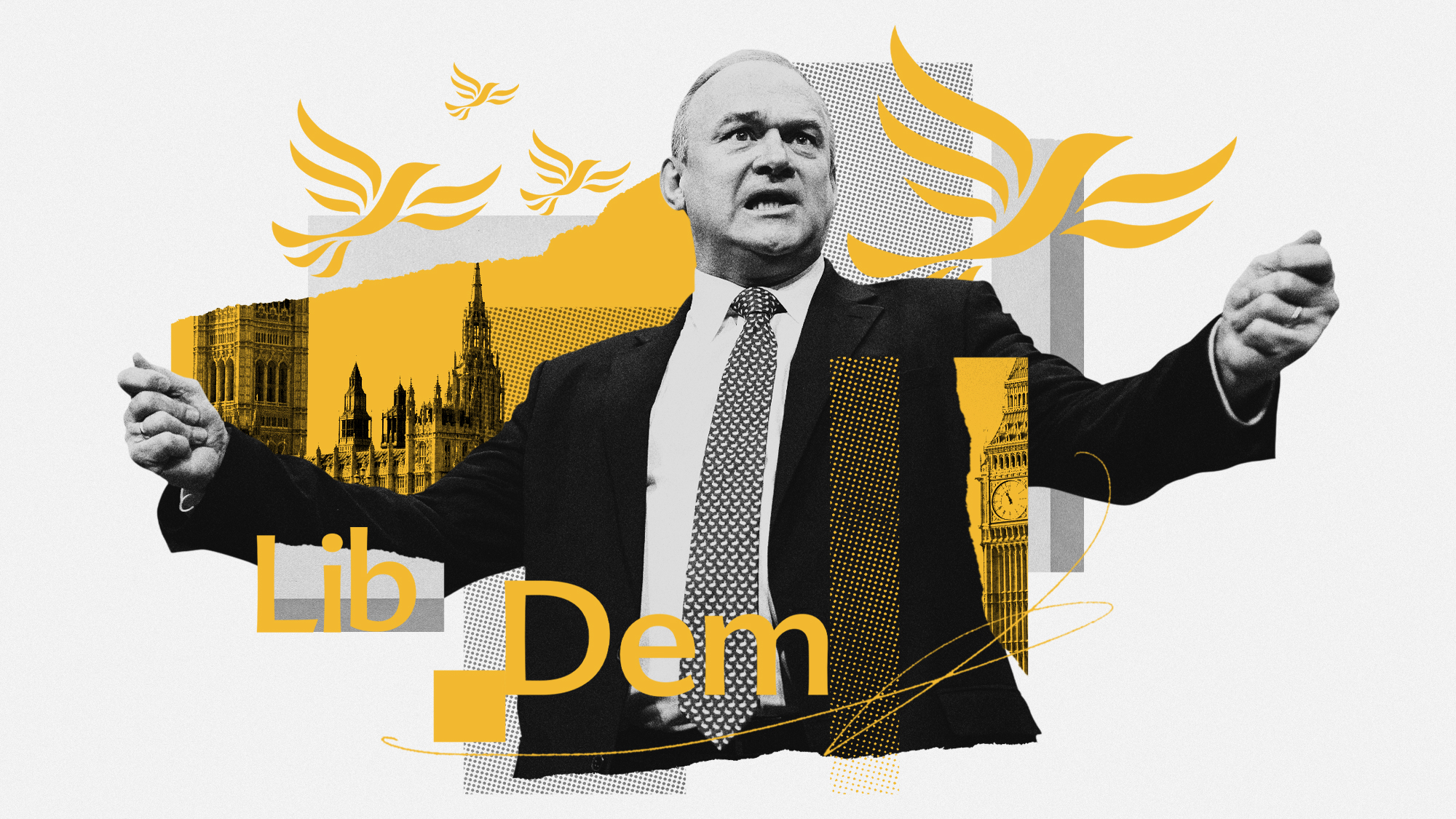 Can the Lib Dems be a party of government again?
Can the Lib Dems be a party of government again?Today's Big Question Leader Ed Davey is urged to drop the stunts and present a serious plan for the country
-
 'Haiti's crisis is a complex problem that defies solution'
'Haiti's crisis is a complex problem that defies solution'Instant Opinion Opinion, comment and editorials of the day
-
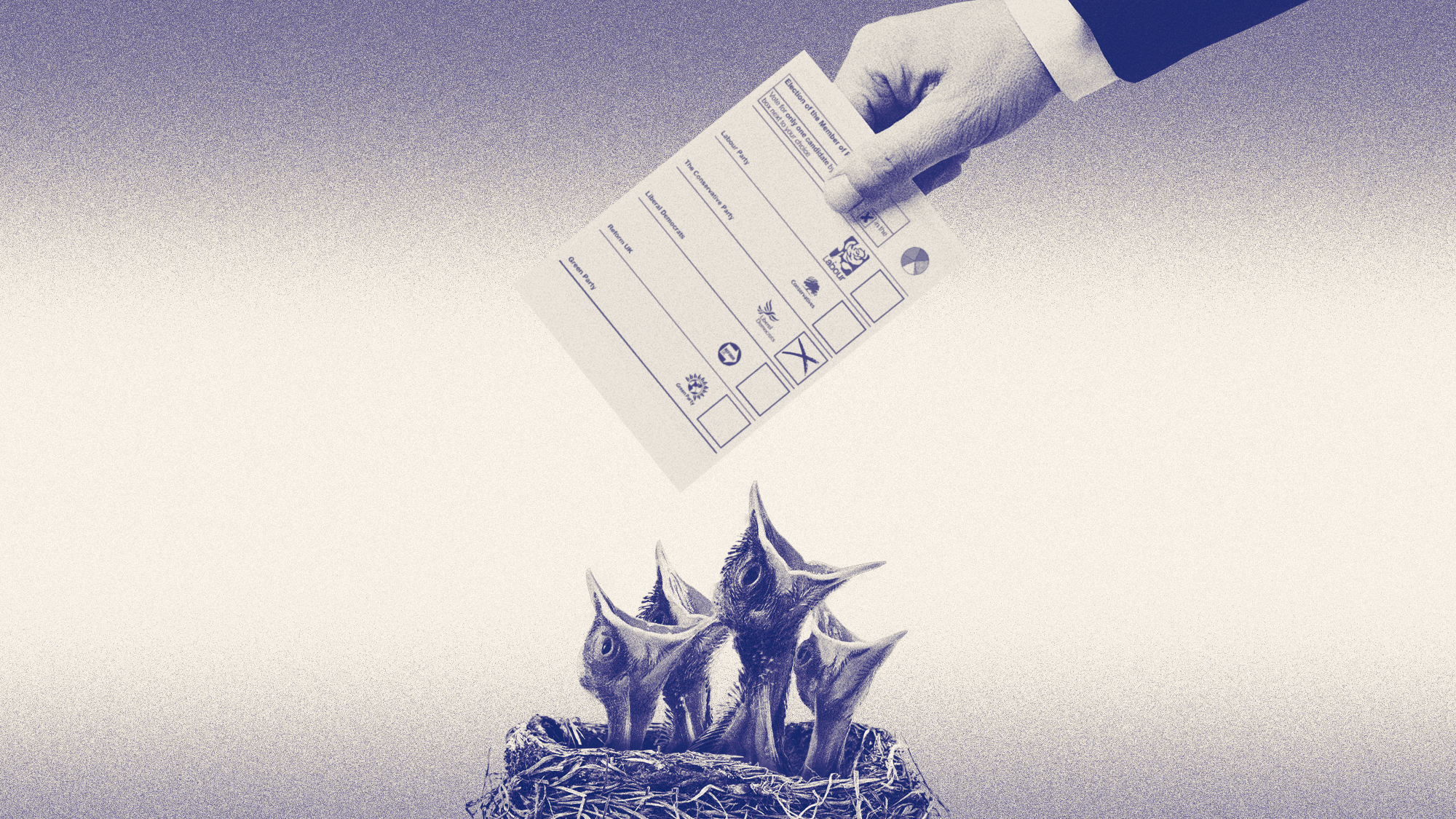 Is the UK's two-party system finally over?
Is the UK's two-party system finally over?Today's Big Question 'Unprecedented fragmentation puts voters on a collision course with the electoral system'
-
 'Detention centers have, for decades, been an abuse of administrative power'
'Detention centers have, for decades, been an abuse of administrative power'Instant Opinion Opinion, comment and editorials of the day
-
 Labour's plans to redefine the green belt
Labour's plans to redefine the green beltThe Explainer Angela Rayner's planning reforms turn green-belt areas into 'grey belt' house-building zones, and campaigners are voicing concerns